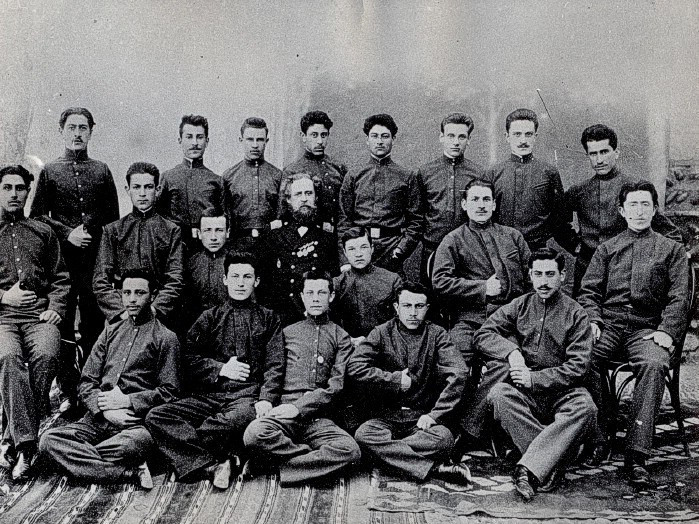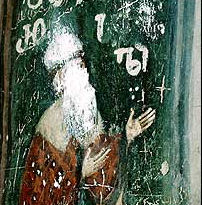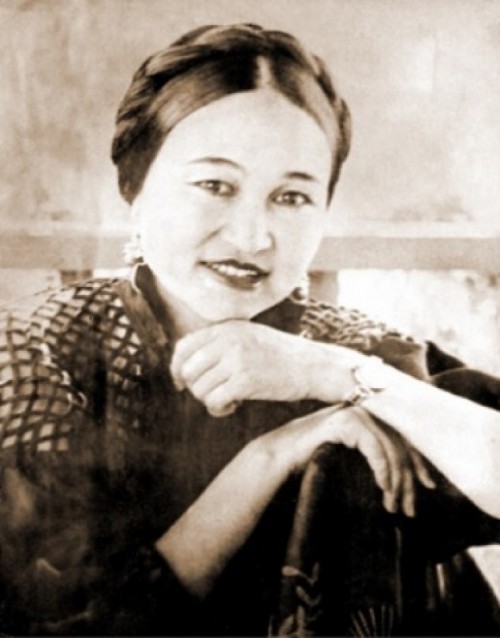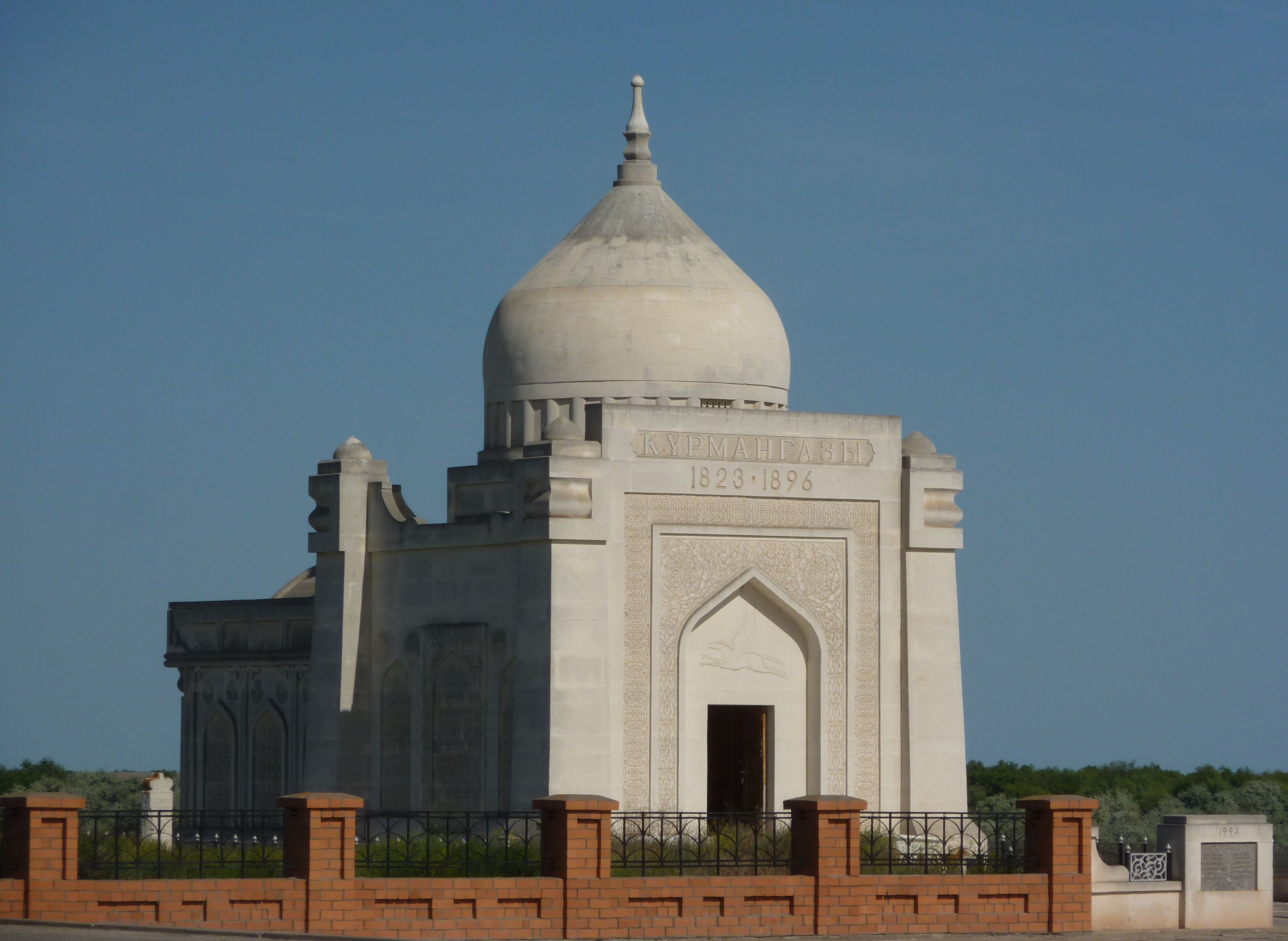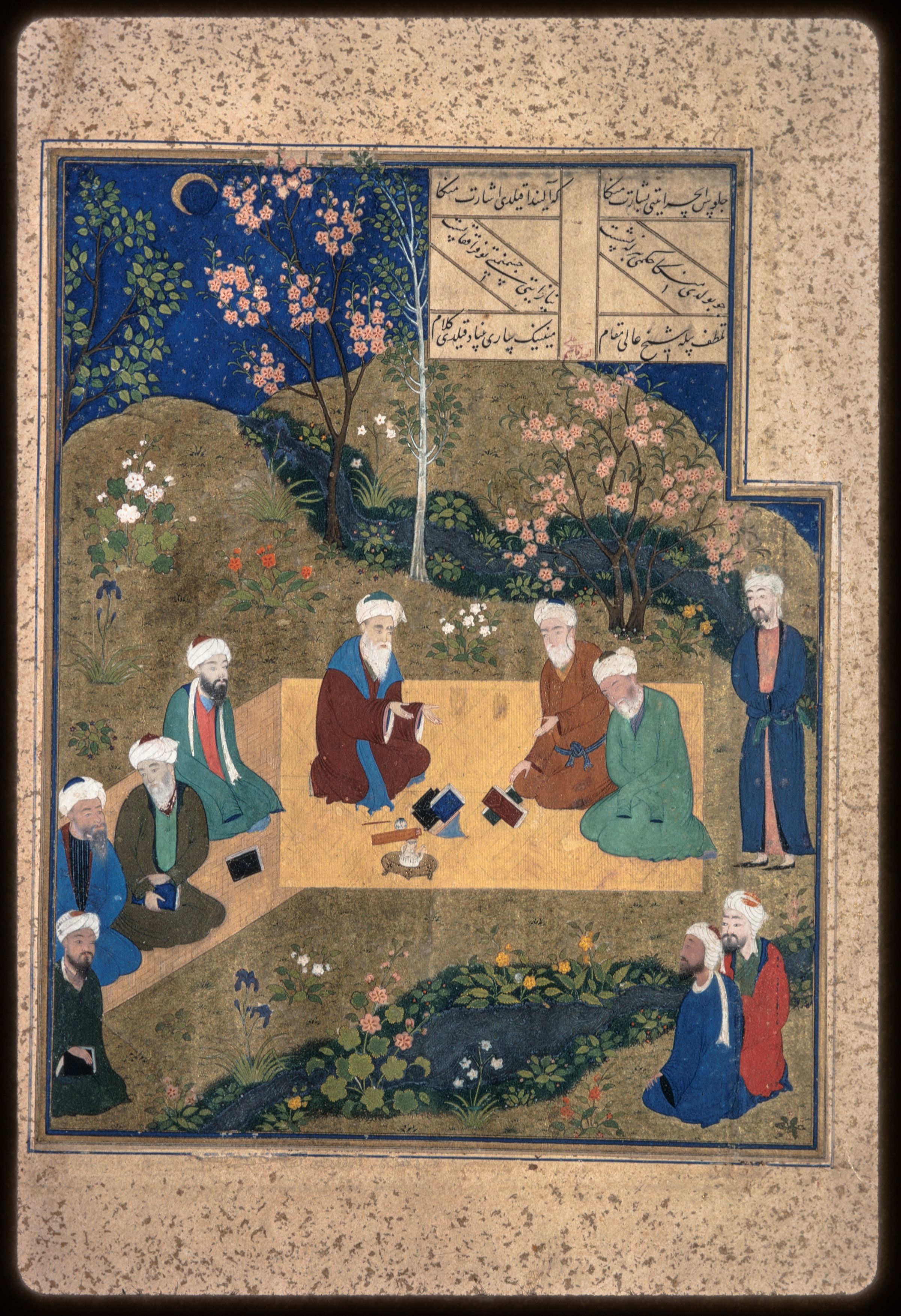|
State Prizes Of The Soviet Republics
The State Prizes of the Soviet Republics were each republic counterpart to the USSR State Prize. Each republic granted several different prizes, generally named after writers or artists from the republic, as well as a blanket Komsomol prize for young artists. Republics * Russian SFSR ** Maxim Gorky (literature) ** Konstantin Stanislavski (theatre) ** Mikhail Glinka (music) ** Vasili Bazhenov (architecture) ** Ilya Repin (fine arts) ** Brothers Vasilyev (cinema) ** Nadezhda Krupskaya (art and literature for children) * Ukrainian SSR ** Taras Shevchenko ** Pavlo Tychyna ** Maksym Rylsky ** Lesya Ukrainka ** Nikolai Ostrovsky * Belarusian SSR **Yanka Kupala (literature) **Yakub Kolas ** Panteleymon Lepeshinsky * Uzbek SSR ** Alisher Navoiy * Kazakh SSR ** Abay Qunanbayuli (literature) ** Kurmangazy (music) **Kulyash Baiseitova * Georgian SSR ** Shota Rustaveli * Azerbaijan SSR: ** Mirza Akhundov (literature) ** Uzeyir Hajibeyov (music) * Lithuanian SSR ** Žemaitė (literature) * ... [...More Info...] [...Related Items...] OR: [Wikipedia] [Google] [Baidu] |
USSR State Prize
The USSR State Prize () was one of the Soviet Union’s highest civilian honours, awarded from its establishment in September 1966 until the dissolution of the USSR in 1991. It recognised outstanding contributions in the fields of science, mathematics, literature, the arts, and architecture. History State Stalin Prize (1941–1956) The award traces its origins to the State Stalin Prize (), commonly known as the Stalin Prize, which was established in 1941. It honoured achievements in science, technology, literature, and the arts deemed vital to the Soviet war effort and postwar reconstruction.Volkov, Solomon; Bouis, Antonina W., trans. 2004. ''Shostakovich and Stalin: The Extraordinary Relationship Between the Great Composer and the Brutal Dictator''. New York: Alfred A. Knopf. ISBN 0-375-41082-1. Ceremonies were suspended during 1944–45 and then held twice in 1946 (January for works from 1943–44; June for 1945 works). USSR State Prize (1966–1991) By 1966, the Stalin Prize h ... [...More Info...] [...Related Items...] OR: [Wikipedia] [Google] [Baidu] |
Yanka Kupala
Ivan Daminikavich Lutsevich (; – 28 June 1942), better known by his pen name Yanka Kupala (Янка Купала), was a Belarusian poet and writer. Biography Early life Kupala was born on July 7, 1882, in Viazynka, a folwark settlement near Maladzyechna. His family had been well-known since the early 17th century, coming from the szlachta, although grown poor so both of his parents had to work as tenant farmers at the folwark. Yanka’s grandfather leased the land from the Radziwiłł family who eventually expelled him from his home. The story later formed the basis of Kupala’s drama ‘’. Young Ivan had to help his father support the family. When his father died in 1902 he became the only provider. He worked a variety of short-term jobs, including as a tutor, a shop assistant, and a record keeper. Later he was hired as a labourer at the local distillery. Despite the hard work he managed to find time for self-education. He wrote almost all books from his father’s li ... [...More Info...] [...Related Items...] OR: [Wikipedia] [Google] [Baidu] |
Uzeyir Hajibeyov
Uzeyir bey Abdulhuseyn bey oghlu Hajibeyov (18 September 188523 November 1948) was an Azerbaijanis, Azerbaijani composer, musicologist and teacher. He is recognized as the father of Azerbaijani classical music. He composed the music of the Azərbaycan marşı, national anthem of Azerbaijan Democratic Republic (which was re-adopted after Azerbaijan regained its independence from the Soviet Union in 1991). Hajibeyov also composed the anthem used by Anthem of the Azerbaijan SSR, Azerbaijan during the Soviet period. He was the first composer of an opera in the Islamic world. He composed the first oriental opera ''Leyli and Majnun (opera), Leyli and Majnun'' in 1908 and since then he is revered for adapting the written masterpiece to the theatre. Early life Uzeyir Hajibeyov was born in Aghjabadi, near Shusha of Azerbaijan, on 18 September 1885. His father, Abdulhuseyn bey Hajibeyli, was the secretary to Khurshidbanu Natavan for many years, and his mother, Shirin, grew up in the Nat ... [...More Info...] [...Related Items...] OR: [Wikipedia] [Google] [Baidu] |
Mirza Akhundov , a surname
{{disambiguation ...
Mirza may refer to: * Mirza (name), a name derived from a historical royal and noble title * ''Mirza'' (lemur), a genus of giant mouse lemurs * "Mirza", a 1965 French-language song by Nino Ferrer * Mirza, Kamrup, a town in Assam, India * Mirza melon, a melon cultivar * Mirza, title character of the Punjabi tragic romance Mirza Sahiban ** ''Mirza Sahiban'' (1947 film), an Indian film adaptation by K. Amarnath ** ''Mirzya'' (film), a 2016 Indian film adaptation by Rakeysh Omprakash Mehra *** ''Mirzya'' (soundtrack), its soundtrack by Shankar–Ehsaan–Loy and Daler Mehndi See also * Mirzai (other) * Mirzapur (other) * Mirza Ghalib (other) * Mirzayev Mirzayev (and its variant Mirzaev) is a surname. People with the surname include: * Abdukarim Mirzayev (born 1982), Uzbek journalist and film director * Arif Mirzayev (born 1944), Azerbaijani composer * Bahatdin Mirzayev (1914–1987), Azerbaijani ... [...More Info...] [...Related Items...] OR: [Wikipedia] [Google] [Baidu] |
Azerbaijan SSR
The Azerbaijan Soviet Socialist Republic, also referred to as the Azerbaijani Soviet Socialist Republic, Azerbaijan SSR, Azerbaijani SSR, AzSSR, Soviet Azerbaijan or simply Azerbaijan, was one of the constituent republics of the Soviet Union between 1922 and 1991. Created on 28 April 1920 when the Russian Soviet Federative Socialist Republic brought pro-Soviet figures to power in the region, the first two years of the Azerbaijani SSR were as an independent country until incorporation into the Transcaucasian SFSR, along with the Armenian SSR and the Georgian SSR. In December 1922, the Transcaucasian SFSR became part of the newly established Soviet Union. The Constitution of Azerbaijan SSR was approved by the 9th Extraordinary All-Azerbaijani Congress of Soviets on 14 March 1937. On 5 February 1991, Azerbaijan SSR was renamed the Republic of Azerbaijan according to the Decision No.16-XII of Supreme Soviet of Azerbaijan approving the Decree of the President of Azerbaijan SSR da ... [...More Info...] [...Related Items...] OR: [Wikipedia] [Google] [Baidu] |
Shota Rustaveli
Shota Rustaveli ( ka, შოთა რუსთაველი, – after c. 1220), mononymously known simply as Rustaveli, was a medieval Georgian poet. He is considered to be the pre-eminent poet of the Georgian Golden Age and one of the greatest contributors to Georgian literature. Rustaveli was the author of '' The Knight in the Panther's Skin'', a Georgian national epic poem. Biography Little, if anything, is known about Rustaveli from contemporary sources. Shota Rustaveli was born in 1166. He started serving Queen Tamar as a Minister of Finance in 1191. His poem itself, namely the prologue, provides a clue to his identity: the poet identifies himself as "a certain Rustveli." "Rustveli" is not a surname, but a territorial epithet that can be interpreted as "of/from/holder of Rustavi"; although a 10th century manuscript fragment found in 1975 in Saint Catherine's Monastery in Sinai attests to its use as a cognomen by a noble house of Ru(i)staveli. Later Georgian autho ... [...More Info...] [...Related Items...] OR: [Wikipedia] [Google] [Baidu] |
Georgian SSR
The Georgian Soviet Socialist Republic, also known as Soviet Georgia, the Georgian SSR, or simply Georgia, was one of the republics of the Soviet Union from its second occupation (by the Red Army) in 1921 to its independence in 1991. Coterminous with the present-day republic of Georgia, it was based on the traditional territory of Georgia, which had existed as a series of independent states in the Caucasus prior to the first occupation of annexation in the course of the 19th century. The Georgian SSR was formed in 1921 and subsequently incorporated in the Soviet Union in 1922. Until 1936 it was a part of the Transcaucasian Socialist Federative Soviet Republic, which existed as a union republic within the USSR. From November 18, 1989, the Georgian SSR declared its sovereignty over Soviet laws. The republic was renamed the Republic of Georgia on November 14, 1990, and subsequently became independent before the dissolution of the Soviet Union on April 9, 1991, whereupon each f ... [...More Info...] [...Related Items...] OR: [Wikipedia] [Google] [Baidu] |
Kulyash Baiseitova
Kulyash Jasynqyzy Baiseitova (born Gülbahram, 19121957) was a Soviet and Kazakh opera singer and actress. People's Artist of the USSR (1936). Biography Kulyash Baiseitova (maiden name Beisova) was born on 2 May (19 April) 1912 (according to other sources – 12 January) in the steppes of Saryarka – Steppe and Lakes of Northern Kazakhstan, Sary-Arka, in the village of the Karkaraly district of the Semipalatinsk Oblast, Russia, Semipalatinsk Oblast (now in the Aktogay District, Karaganda Region, Aktogay district of the Karaganda Region of Kazakhstan (According to official data in the city of Almaty, Verny (now Almaty). She was born to a very simple family: mother Zibazhan, a washerwoman, father Zhasyn, a Shoemaking, shoemaker. Her birth name was Gulbakhram; Kulya – her childhood nickname – gradually turned into the name Kulyash. Her parents were so broke that they could not feed two children. Therefore, Gulbakhram was sent to an orphanage even before school."Советс ... [...More Info...] [...Related Items...] OR: [Wikipedia] [Google] [Baidu] |
Kurmangazy Sagyrbayuly
Kurmangazy Sagyrbayuly (, ''Qūrmanğazy Sağyrbaiūly''; 1823–1896) was a Kazakhs, Kazakh composer, instrumentalist (kobyz, dombra), and folk artist. He influenced Kazakh musical culture. He was born in 1823 in the Bukey Horde (now Zhanakala District, West Kazakhstan Region). He is buried in the Astrakhan region of Lower Volga in today's Russian Federation. Biography Kurmangazy was born and raised in the Bukey Horde, in what is now Zhanakala District, West Kazakhstan Region, in a place called Zhideli. His final resting place is in Astrakhan Oblast, at a site formerly known as "Shaitani Bataga", which is now called "Kurmangazy Hill" in his honor. Kurmangazy Sagyrbaiuly's origins trace back to the "Kishi Zhuz" (Junior Horde) of the Kazakh people, specifically to the "Sultansiyk" branch of the "Baibakty" clan within the "Baiuly" tribe. His maternal lineage comes from the "Berish" clan, known for its legendary warriors and influential figures. Kurmangazy's seventh-generation an ... [...More Info...] [...Related Items...] OR: [Wikipedia] [Google] [Baidu] |
Abay Qunanbayuli
Abai Qūnanbaiūly () was a Kazakh poet, composer and Hanafi Maturidi theologian philosopher. He was also a cultural reformer toward European and Russian cultures on the basis of enlightened Islam. Early life and education Abai was born in Karauyl village in Chingiz volost of Semipalatinsk uyezd of the Russian Empire (this is now in Abay District of Abai Region, Kazakhstan). He was the son of Qunanbai and Uljan, his father's second wife. They named him Ibrahim, as the family was Muslim, and he stuck with the name for the first few years of his life. Ibrahim first studied at a local madrasah under Mullah Ahmed Ryza. During his early childhood years in Ryza's tutelage, he received the nickname "Abai" (which means "careful"), a nickname that stayed with him for the rest of his life. His father was wealthy enough to send Abai to a Russian secondary school in Semipalatinsk. There he read the writings of Mikhail Lermontov and Alexander Pushkin, which were influential to his own ... [...More Info...] [...Related Items...] OR: [Wikipedia] [Google] [Baidu] |
Kazakh SSR
The Kazakh Soviet Socialist Republic, also known as Soviet Kazakhstan, the Kazakh SSR, KSSR, or simply Kazakhstan, was one of the transcontinental constituent republics of the Soviet Union (USSR) from 1936 to 1991. Located in northern Central Asia, it was created on 5 December 1936 from the Kazakh ASSR, an autonomous republic of the Russian SFSR. At in area, it was the second-largest republic in the USSR, after the Russian SFSR. Its capital was Alma-Ata (today known as Almaty). During its existence as a Soviet Socialist Republic, it was ruled by the Communist Party of the Kazakh SSR (QKP). On 25 October 1990, the Supreme Soviet of the Kazakh SSR declared its sovereignty on its soil. QKP first secretary Nursultan Nazarbayev was elected president in April of that year – a role he remained in until 2019. The Kazakh SSR was renamed the Republic of Kazakhstan on 10 December 1991, which declared its independence six days later, as the last republic to secede from the USSR ... [...More Info...] [...Related Items...] OR: [Wikipedia] [Google] [Baidu] |
Alisher Navoiy
'Ali-Shir Nava'i (9 February 1441 – 3 January 1501), also known as Nizām-al-Din ʿAli-Shir Herawī ( Chagatai: نظام الدین علی شیر نوایی, ) was a Timurid poet, writer, statesman, linguist, Hanafi Maturidi mystic and painter who was the greatest representative of Chagatai literature. Nava'i believed that his native Chagatai Turkic language was superior to Persian for literary purposes, an uncommon view at the time and defended this belief in his work titled ''Muhakamat al-Lughatayn'' (''The Comparison of the Two Languages''). He emphasized his belief in the richness, precision and malleability of Turkic vocabulary as opposed to Persian. Due to his distinguished Chagatai language poetry, Nava'i is considered by many throughout the Turkic-speaking world to be the founder of early Turkic literature. Many places and institutions in Central Asia are named after him, including the province and city of Navoiy in Uzbekistan. Many monuments and busts in honou ... [...More Info...] [...Related Items...] OR: [Wikipedia] [Google] [Baidu] |

